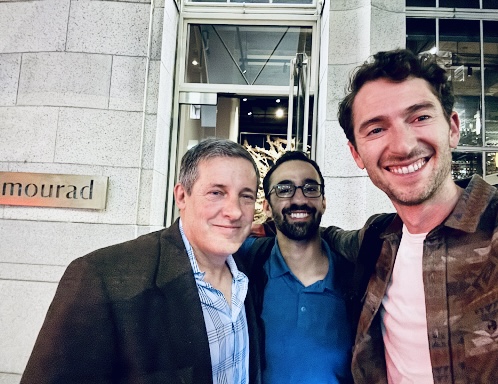Mechanical Orchard’s quiet AI revolution – moving the global economy from mainframe to the cloud
There’s a lot we didn’t know about mainframes. Room-sized humming beige boxes – they feel and sound like a thing of the past, but they’re very much of the present. We were shocked to learn how much:
- Today, $13 trillion of the U.S. economy depends on mainframe systems.
- 71% of the Fortune 500 are still reliant on mainframes, and spend more than $20B annually on buying and maintaining them.
- 44 out of the top 50 banks, 10 out of 10 top insurers, and 23 out of 25 top U.S. retailers all run on them.
- Every time you use your credit card or buy an airplane ticket, a mainframe powers the transaction.
In short, these on-prem behemoths are holding up the global economy. But those who can program them, largely in dying languages like COBOL, are a dying (and retiring) breed themselves. Not only are these black box code bases fragile, they’re increasingly obsolete. Companies still stuck in the mainframe already missed the numerous benefits of building software with open source technology inaccessible to them in the mainframe. Now, they are about to miss the second massive secular shift: generative AI. For many companies the ultimatum is clear: innovate or die.
Cue Mechanical Orchard, our newest Series A investment, and the team already driving this transformation. Where they specialize: migrating the tough stuff safely and effectively – the delicate, complex code of core applications that’s “always on” and too vital to break.
The brittleness of these systems puts companies that depend on them, and whole pillars of our economy, at risk. Remember Southwest’s 2022 holiday meltdown? Outdated technology (with limited folks capable of fixing it) led to the cancellation of 16,000 flights, stranding 2 million passengers. Moving data to more resilient systems is increasingly non-optional, and AI is proving to be the key.
Before now, IT professional services firms were tasked with rewriting millions of lines of outdated code in a modern format – and failed 70% of the time. Today, Mechanical Orchard uses generative AI to comprehend the spaghetti code stored on old systems and understand what’s active, what’s dead, and what’s needed to preserve functionality. With this insight, its engineers can efficiently rebuild leaner, cleaner versions in the cloud.
All of this is right up our alley here at Emergence. From the beginning, we’ve stayed focused on a few defining themes. The one that started it all: Fueling the shift from on-prem systems to the cloud. That mission drove our investment in Salesforce and so many since. So it only feels right to be in the front row for this next chapter (the biggest, thorniest yet), and one that only AI could make possible.
With Mechanical Orchard, we’re partnering with perhaps the only team on the planet that could tackle a challenge like this. We’ve seldom seen better founder-market fit than Rob Mee leading this charge. As the founder of hallowed agile development firm Pivotal Labs, he’s been solving thorny technical problems for large clients for over 30 years. In this time, he’s earned the trust of thousands of CEOs, CIOs, CTOs and 10x engineers eager to follow his lead. This clearly accounts for the remarkable team he’s surrounded himself with. Mechanical Orchard’s product and service offering is the collective brainchild of some of the brightest engineering and business minds in the world, already topping 50 across 5 global markets.

The company’s AI-enhanced approach gets better as it learns from every project, iterating to reduce risk, remove countless operational constraints, and take more off the shoulders of humans to automate work that’s (let’s face it) inhuman. Their customers have been able to move faster to market, work with data more easily, and integrate new revenue models. At the same time, they have transparency into what’s going on under the hood and more control over how their systems are architected.
In just a year since their founding, Mechanical Orchard has migrated to the cloud core applications for companies like Omni Logistics, hitting double digit millions in recognized revenue and ending 2023 profitable. Demand only continues to grow as CIOs and CTOs everywhere are asking themselves what more AI could unlock – if only their most important systems were malleable. In fact, CIOs expect cloud migrations to happen at a more accelerated clip, because they are seeing the impact that AI is having in other parts of their business. In Q2 of 2023, 100 CIOs surveyed by Morgan Stanley expected that only 45% of application workloads would be running in the public cloud. In the latest survey from Q4 2023? 53%! This 8pp increase is the highest movement since they started reporting survey results in 2016.
As we all learn and sprint and fumble to figure out how AI might be used, it’s critical to us at Emergence that we invest in AI that matters – AI that generates real value for millions of people by remaking our most entrenched systems.
We couldn’t be more excited to work with Rob and his team as they do exactly that.
Enjoying this article?
Sign up to gain access to our thought leadership and have future articles delivered directly to your email.